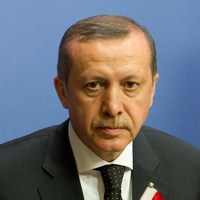At a parliamentary group meeting today, Turkish Prime Minister Recep Tayyip Erdogan slammed his country’s courts for acting as part of a parallel state undermining his government. Erdogan’s remarks were the latest maneuver in an ongoing struggle between Turkey’s judiciary and the prime minister and his ruling Justice and Development Party (AKP), a contest that Michael Koplow described in an article for World Politics Review in January. With the dispute showing no signs of flagging, WPR spoke via email with Koplow, program director at the Israel Institute and the author of the blog Ottomans and Zionists, to review the latest developments and what they mean for the rule of law in Turkey.
“The judiciary has become public enemy No. 1 for supporters of the government, and it has become the only remaining hope for a check on the government’s power for opponents of the government,” says Koplow. “Judicial rulings are fated to be seen as political irrespective of their actual content and motivation, and thus Turkish rule of law further suffers.”
Since January, Erdogan has banned Twitter and YouTube, attempted to reorganize the Supreme Council of Judges and Public Prosecutors (HSYK) and removed or reassigned hundreds of judges and prosecutors in response to a corruption scandal.

